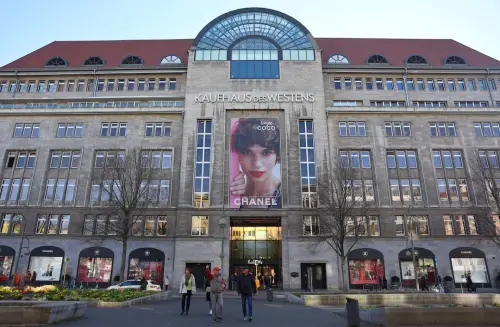Berlin's borrowing spree is driving up lending costs, further straining beleaguered property companies seeking new loans and threatening to exacerbate the country's broader economic challenges.
Germany, often referred to as Europe's industrial powerhouse, faces a property crisis that has prompted investors to withdraw billions of euros from the critical sector amidst numerous corporate bankruptcies. After soaring over the past decade, property prices are now declining, with experts predicting worse outcomes ahead.
Falling demand for office spaces, many of which remain vacant post-pandemic, alongside a continued decline in home values, is intensifying these challenges as Germany faces one of its most significant economic slumps since the war.
Recently, the government announced a 500 billion euro borrowing initiative to address declining infrastructure, abandoning its self-imposed debt limits. Ironically, this plan may lead to increased borrowing costs for companies intended to benefit from the stimulus.
The yields on benchmark 10-year government bonds, which influence credit costs, rose by more than a quarter percentage point following the spending announcement. Sven Carstensen, a manager at the Berlin-based consultancy Bulwiengesa, noted, "The clouds have darkened," indicating that rising borrowing costs raise doubts about whether the worst of the home price decline is over. He added that transactions in commercial properties like offices are already "very muted because prices are too high" and are likely to remain so this year.
On Wednesday, Rolf Buch, the CEO of Germany's largest property owner, Vonovia, announced the company's third consecutive year of losses, exceeding 8 billion euros. He warned that plans for growth might be jeopardized by the government's spending, potentially leading to the postponement of some construction projects. Buch explained that "higher interest rates are not good for real estate values because they make refinancing more expensive."
There are concerns that the allocated funds may not effectively reach the property sector, given more pressing needs such as an ailing rail network. Germany's complex and fragmented governance, characterized by rivalries and significant local political influence, could further delay funds reaching property firms.
Florian Schwalm, managing partner at EY for real estate, stated that regardless of how the spending plans are structured, their impact on revitalizing the real estate market will be limited.
In this challenging environment, negative news continues to overshadow Germany's economic landscape. In January, investors withdrew 500 million euros from German property funds, marking the worst outflow since the global financial crisis, following several tumultuous months in which about 7 billion euros was pulled out, according to Barkow Consulting.
Peter Barkow observed, "The stream of bad news last year means that there is no end in sight," predicting another wave of withdrawals from such funds later this year.
Meanwhile, the overall German economy struggles, with one in five of the major insolvencies in the past year involving property firms, according to consultancy Falkensteg. The country's 730 billion euro property industry is a vital economic pillar, accounting for nearly a fifth of national output, surpassing even the prominent automotive sector.
After years of growth, the real estate market ground to a halt in 2022 as the European Central Bank implemented swift interest rate hikes to combat rising inflation. The industry, previously thriving, was unprepared; construction projects ceased, jobs were lost, sales plummeted, and many property developers declared insolvency.
One of the most notable collapses involved a major property and retail giant with significant operations in Germany, leading to the sale of the renowned KaDeWe in Berlin and suspending the construction of other projects.
Andreas Naujoks, a real estate lawyer with Noerr, stated, "The higher cost of borrowing is here to stay." While larger companies may weather the storm, smaller firms are likely to face considerable difficulties.
